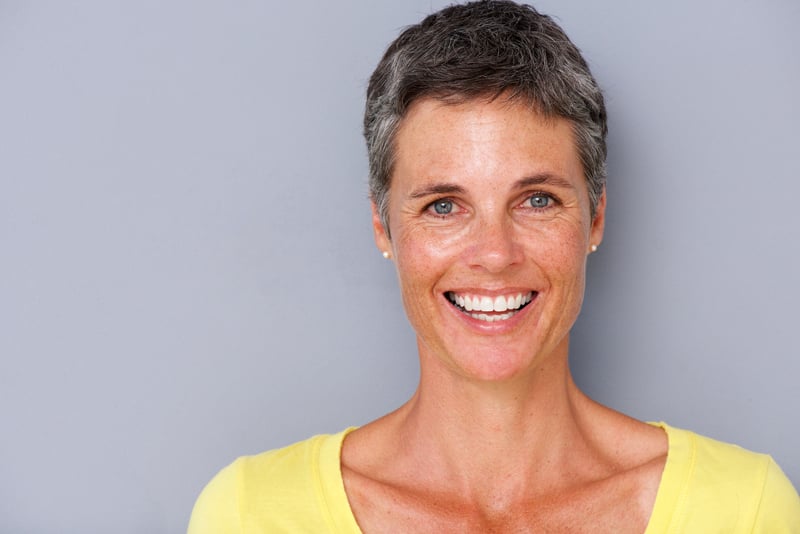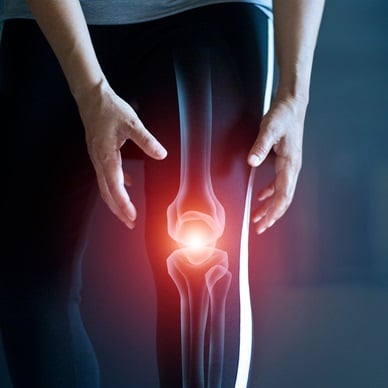5 Reasons You Need to Embrace a Pro-Aging Attitude

We’ve all heard “age is just a number.” At the same time, our society surrounds us with images that suggest youth is beauty and beauty is youth. Jokes are made about being over the hill, past your prime, and on the downside, even as young as 30 years old. Aging, it seems, is something to resist if not ferociously fight, rather than accept and possibly embrace. Sadly, this attitude isn’t just depressing. Internalizing these negative stereotypes can lead to increased risk of disease and an early demise. Developing a pro-aging attitude, on the other hand, provides an abundance of benefits.
Anti-Aging vs Pro-Aging
Anti-aging is the belief that aging is something to be prevented, if not altogether doing your best to avoid. The goal is to somehow remain young—or at least look and act as if you are. The attitude is often internalized even when we’re young and can lead to agism, where we treat older people as sick, unwell, and less capable than they really are.
Past a certain age, people may seem to ignore or even hide their birthdays. And as 50, 40, or even 30 are seen as “old,” we’re bombarded with anti-aging products to help the skin look fresh and youthful.
Pro-aging, on the other hand, is shifting to the belief that aging is something to enjoy, embrace, and yes, look forward to. Age is internalized as something to be respected and even revered for the wisdom, experience, and understanding that’s been cultivated through the decades. Skincare is seen as something to enjoy as part of self-care and healthcare (for example, regularly using sunscreen or consuming collagen) to keep the skin healthy rather than making yourself young again.
5 Reasons to Change Your Mindset to Pro-Aging
1. It’s a Self-Fulfilling Prophecy
If you expect aging to be difficult and unpleasant, you’re right. If, however, you are looking forward to the aging process and are satisfied with your body, mind, and life as the decades past (i.e., you’re pro-aging), you’re more in control of how you age. This can help you make healthier choices (such as eating healthfully, exercising regularly, and getting your medical and dental checkups).
For instance, if you don’t think that heart disease is predetermined, you are better able to make heart-healthy choices. 1 In addition to helping you practice preventative habits, this simple attitude shift can also support a stronger immune system.
2. It Can Help You Live Longer
It’s not just about how you think, either. Being pro-aging can have a real impact on how many years you live. One study from 2001 found, for instance, that how people perceived aging affected survival rates over the next 22.6 years. They took 660 participants who were over 50 years old and asked them questions about aging and retirement. Those who had a positive attitude about aging, such as feeling useful and happy, had improved health stats, including healthier blood pressure and cholesterol level. What’s more, they tended to exercise more regularly and have a healthier body mass index. As a result, the more pro-aging individuals lived an average of 7.5 years longer. 2
One big reason for this is because the positive attitude had a protective effect on the heart. People who believed heart disease is inevitable as you get older were more likely to have cardiovascular issues over the next 38 years. Those who had a more positive opinion about aging and the heart, on the other hand, reduced their risk of having a cardiovascular event by a whopping 80%! 3
SPECIAL OFFER: Ageless Turmeric Supports Healthy Inflammation Levels & Detoxification. Now Up to 71% Off.
3. It Can Help You Stay Independent
One common fear of folks as they age is that they’ll become disabled and lose independence. A bad fall can quickly change your ability to live on your own and take care of yourself, your partner, your pet, or your home. Fortunately, staying physically active and keeping your mind sharp can help you hold onto your independence. Again, research has found that people who have a more positive view of how well they’ll age were able to stick with their daily activities. This meant they remained physically and mentally stronger, which allowed them to continue enjoying greater independence. 4
4. It Can Slow Cognitive Decline
We’ve all met people who are decades (or more) older than us that continue to stay sharp and with it—no matter how old they are. We’ve also likely been in contact with people who seem confused or forgetful, even from a fairly young age. Surprisingly, how you expect aging to affect the mind makes a big difference on your own cognitive decline over the years. For instance, one 38-year study found that those older adults (60+) who held negative stereotypes on how the mind ages experienced a 30.2% larger decline in memory than those who didn’t have the same judgements about aging. 5
5. It Promotes Well-Being
As the decades pass, more of us are living longer than ever before. In fact, the population of older Americans is bigger now than ever before. As a group, seniors continue to live active, healthy lives and contribute to the economy (up to $7.6 trillion per year) and creatively solve problems. And by 2030, an estimated 1 in 5 people will be over 65 years old, which will outnumber children for the first time ever in the U.S.
A pro-aging attitude can help promote successful aging and improve well-being. It can also help you see yourself as an asset to your family and community as you continue to contribute to others.
In contrast, negative attitudes have been found to actually degrade the brain and lead to decreased moods (e.g., depression and anxiety) and less ability to process complex information or control motor functions. 6 This can lead to increased clumsiness and making poor decisions. Over time, negative thoughts about aging and other aspects of life can rewire the neural pathways in the brain for more negative thoughts and outcomes. Ouch!
How to Develop a Pro-Aging Attitude
The benefits of your new pro-aging attitude are priceless—including improved quality of life, aging gracefully, greater independence, increased lifespan, and decreased risk of diseases from dementia to heart disease.
Yet if you’re one of the many people who has struggled to tightly cling to your youth, then becoming “pro-aging” can feel a bit difficult. So, how can you reframe your opinion to see age as a privilege to embrace rather than an inevitable decline?
One method is to look beyond Western cultural and societal beliefs that tend to value youthful physical beauty (no matter how fleeting) above wisdom, experience, and inner and outer beauty. For instance, Eastern mindsets, founded on the philosophies of Buddha, Confucius, and Taoism, value age as a time of growing wisdom and even see it as a period of growth and rebirth. Every year is celebrated and embraced for the gifts it provides, including the triumphs and hardships that allow you to gain greater wisdom. And elders are revered for their wisdom and guidance against the follies of youth.
Other ways to stay positive about aging include:
- Doing what you love
- Staying active
- Staying engaged with your life and the people and community around you
- Having fun and living life to the fullest
- Continuing to dream and find purpose in your life
- Staying connected with others and growing and nourishing your tribe, including family, friends, neighbors, co-workers, and community members
- Expanding (rather than limiting) your experiences to support growth at every stage of life
- Optimizing your nutrition to provide your body with the fuel you need to stay energized
- Coaching your brain to overcome negative thoughts and better manage stress with meditation and learning how to reframe thoughts and experiences
- Dispelling the outgrown (and false) myths of aging by continuing to get stronger with exercise and developing new skills and talents throughout life
Remember, aging is a natural part of life, and statistically, the people who have the most birthdays are the ones who live the longest. So, make the most of the later years, knowing that how you accept and embrace getting older can lead to a longer life with greater independence and health, even when the birthday cake candles get a bit more crowded.




 US Doctor: "Eating This Every Day Can Snap You Into Ketosis"
US Doctor: "Eating This Every Day Can Snap You Into Ketosis" 3 Key Nutrients to Help Lubricate Your "Tin Man" Joints
3 Key Nutrients to Help Lubricate Your "Tin Man" Joints AVOID Plant-Based Protein Powders (unless...)
AVOID Plant-Based Protein Powders (unless...)

